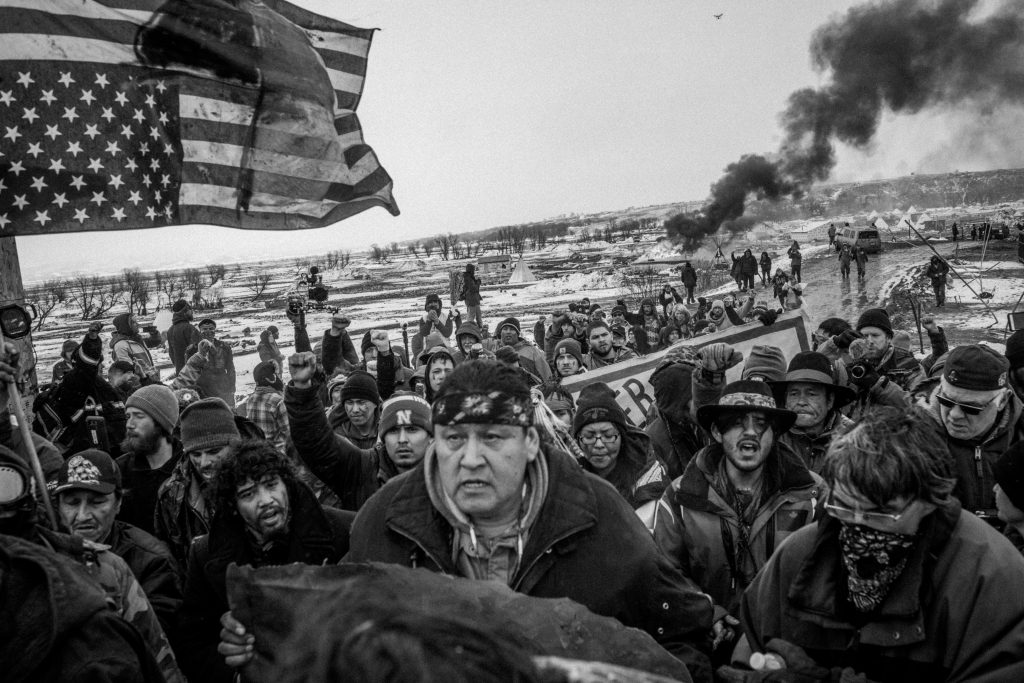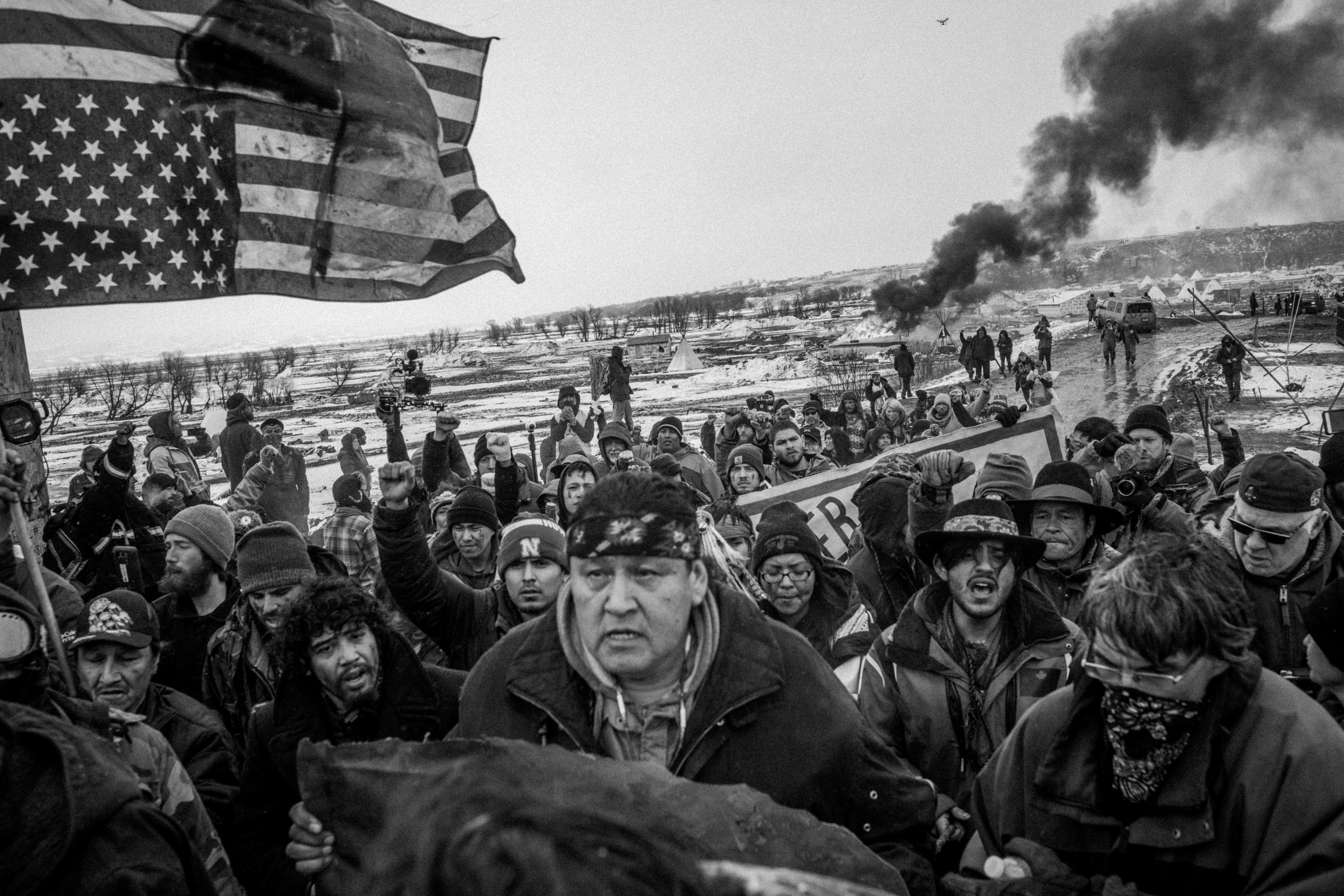Raise Your Hand If You’re Human: Ethical Reporting in Crisis Situations

“What was happening at Standing Rock was about humanity,” says journalist and filmmaker Josué Rivas. Photo: Josué Rivas
By Vicky Stein
SAN FRANCISCO—Reporters of crises around the globe, remember: the people we are reporting on are us.
There should be no difference between ourselves, as journalists, and the people suffering from climate change, natural disasters, and human-caused misery around the globe. That was the consensus of a diverse group of field reporters speaking at the World Conference of Science Journalists 2017.
At a 28 October panel entitled “The Human Ethics of Global Crisis Reporting,” the journalists shared wide-ranging perspectives from their hometowns and abroad.
Reporters in the field want to cover news responsibly and well, they said. Journalists work under deadlines and word counts, with accountability to editors and readers. But when a virus sweeps across a continent, or when protesters are freezing under government-sanctioned water cannons, humanity should take precedence.
“Stop yourself, pull yourself back and ask yourself: When I leave here, what impact am I going to have on people’s lives?” asked panelist Margie Mason, an Asia-based reporter for The Associated Press.
A responsibility to follow through
Mason discussed her work finding, reporting, editing, and handling the repercussions of a story revealing slavery in Thailand’s fishing industry. She and three AP colleagues interviewed men forced to work on a remote island, producing fish sold in markets worldwide—including in the United States.
“We’re like doctors; we should do no harm.”
According to Mason, the dangers were twofold: to herself and the team working with her, and to the men who had talked with the reporters. Her responsibility was not just to her editors and readers, but also to her sources facing retribution from their captors. She considered the line between journalism and activism, she said, and promptly crossed it.
Before publication, Mason ensured her sources were safe. After the team’s Pulitzer Prize–winning series ran, more than 2,000 additional men were rescued.
“We’re like doctors; we should do no harm,” said Mason. “We never go back and check, and I think that’s a really important thing to think about.”
Local eyes for global stories
To Izabela Moi, the way to get deep stories about human crises is to live with them. She leads a group of writers in the poorest areas of São Paulo, Brazil, who uncover stories invisible to reporters more removed from water shortages, public transportation failures, and public health services.
“When you are a journalist and a victim, then you start to feel the real story.”
Ramesh Bhushal agreed, citing his own experience living and working in Nepal during and after a major earthquake in 2015. The quake devastated Kathmandu and rural areas, killing nearly 9,000 people and leaving 3.5 million people homeless. But international reporters focused on the chances of another earthquake and mismanagement of resources, and they posed tone-deaf questions to grieving mothers. The coverage only isolated and infuriated locals, while audiences abroad had no grasp of the disaster’s human elements.
“When you are a journalist and a victim, then you start to feel the real story,” said Bhushal, who reports and edits for The Third Pole and Earth Journalism Network.
Find the humanity
“We adopt these personas as journalists and forget about the fact that it’s not about those folks. It’s actually you,” said documentarian Josué Rivas. “It’s not about them, it’s about us.”
Many panelists touched on the ego of reporters looking for a scoop or a sure-fire headline, and they urged reporters never to write a story they don’t care about. Even as outsiders sent to a disaster area or a protest camp on assignment, reporters must find the humanity in every crisis.
“It’s super-simple to me,” said Rivas, referring to the local people he interviewed at Standing Rock Reservation in 2016 during the standoff over the Dakota Access oil pipeline. “We actually are all together in this whole process of reporting, trying to make a better world.”
—
Vicky Stein is a student in the Science Communication Program at UC Santa Cruz and an intern with the Stanford News Service. Find her online at vickystein.media or @agentredsquirrl; find her in person, often, somewhere in the Pacific Ocean.

